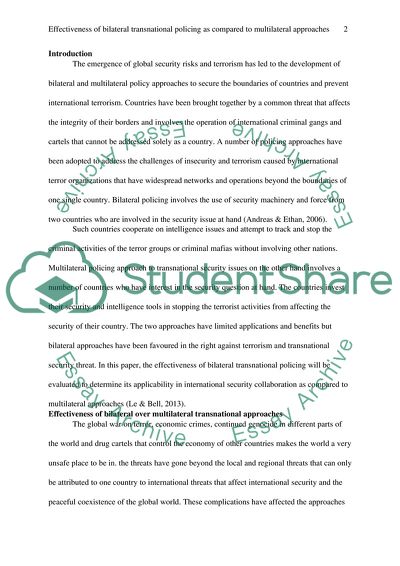Cite this document
(“Effectiveness of Bilateral Transnational Policing as Compared to Essay”, n.d.)
Effectiveness of Bilateral Transnational Policing as Compared to Essay. Retrieved from https://studentshare.org/social-science/1819656-bi-lateral-transnational-policing-co-operation-approaches-are-more-effective-than-multi-lateral-approaches-discuss
Effectiveness of Bilateral Transnational Policing as Compared to Essay. Retrieved from https://studentshare.org/social-science/1819656-bi-lateral-transnational-policing-co-operation-approaches-are-more-effective-than-multi-lateral-approaches-discuss
(Effectiveness of Bilateral Transnational Policing As Compared to Essay)
Effectiveness of Bilateral Transnational Policing As Compared to Essay. https://studentshare.org/social-science/1819656-bi-lateral-transnational-policing-co-operation-approaches-are-more-effective-than-multi-lateral-approaches-discuss.
Effectiveness of Bilateral Transnational Policing As Compared to Essay. https://studentshare.org/social-science/1819656-bi-lateral-transnational-policing-co-operation-approaches-are-more-effective-than-multi-lateral-approaches-discuss.
“Effectiveness of Bilateral Transnational Policing As Compared to Essay”, n.d. https://studentshare.org/social-science/1819656-bi-lateral-transnational-policing-co-operation-approaches-are-more-effective-than-multi-lateral-approaches-discuss.


